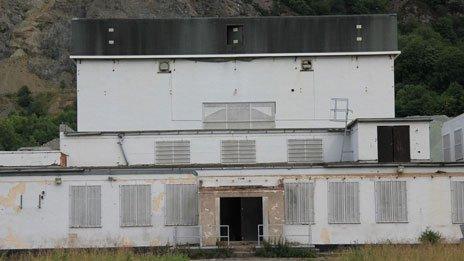Secret WW2 wireless station in Norwich gets heritage protection
- Published
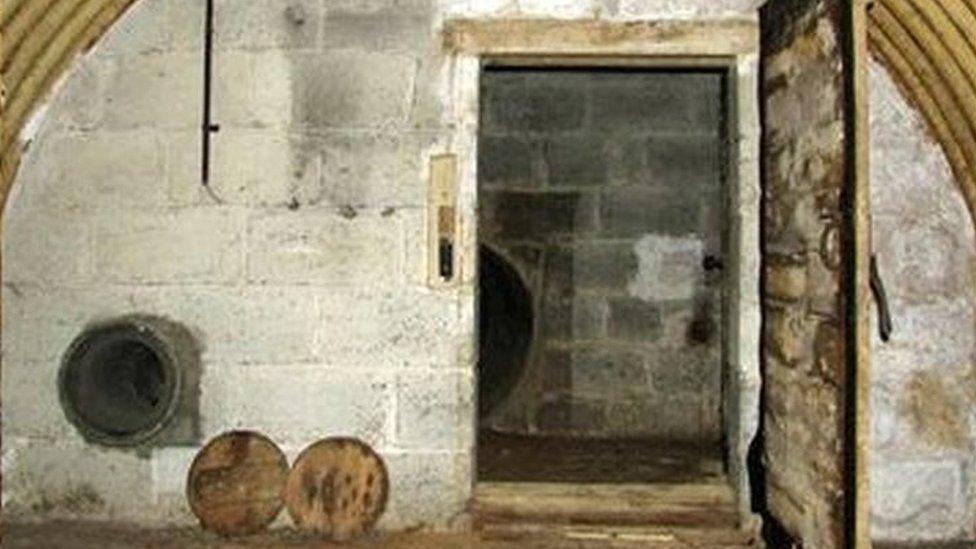
The World War Two secret wireless station in Norwich has been protected as a scheduled monument
An underground wireless station set up in 1940 by Winston Churchill to counteract a feared German invasion has been given heritage protection.
The secret station was manned by civilian volunteers who would send and receive messages for the Army.
It was discovered in 2012 at a house just outside Norwich called Pinebanks.
Complete with a fake bookcase to conceal the room and an escape tunnel, Historic England said it was a "rare example."
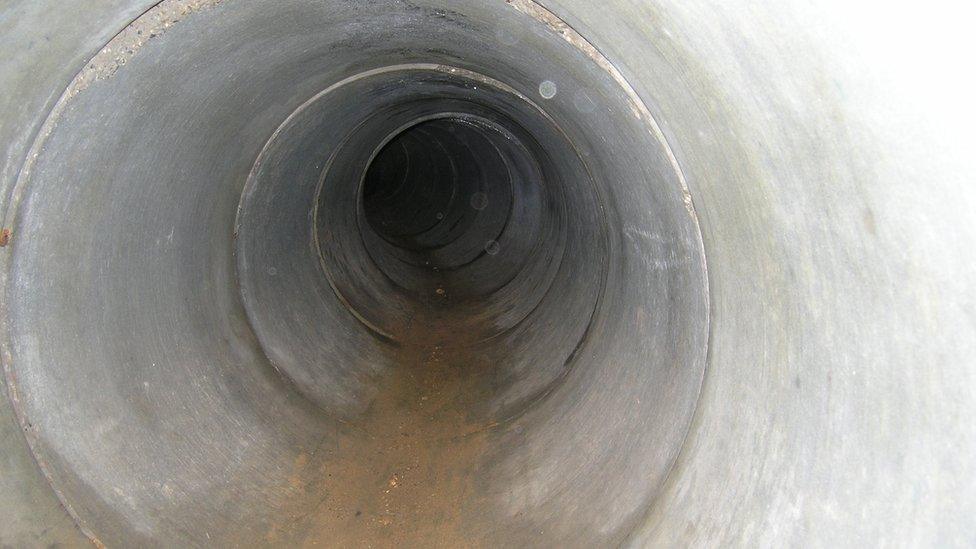
The escape tunnel was constructed so soldiers operating the station could get away if the enemy discovered the dugout. Soldiers were expected to destroy sensitive material before escaping
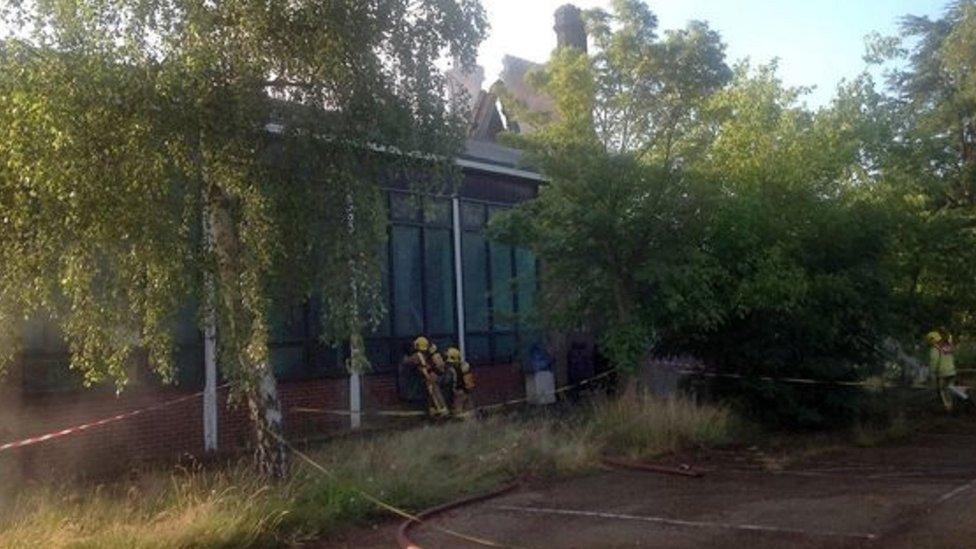
Pinebanks was gutted by a fire in 2014
By June 1940, the increasing threat of German invasion and potential occupation prompted Prime Minster Churchill to set up a secret mission called GHQ Auxiliary Units, with a particular branch known as "Special Duties".
It used civilian volunteers, living in areas like the south-east of England and East Anglia seen as most under threat of invasion, to spy and report on German military activities, had the UK been invaded.
Historic England said these recruits to "Churchill's secret army" transmitted messages from hidden "Out-stations" to military-run "In stations", like the one at Pinebanks.
"So much information about the stations was either hidden or destroyed," said Historic England's Tony Calladine.
"This small but significant dugout has great potential to teach us about a relatively little known area of our 20th Century military history."
Details about their locations and construction were kept secret and very little documentation on the 32 In stations exists.
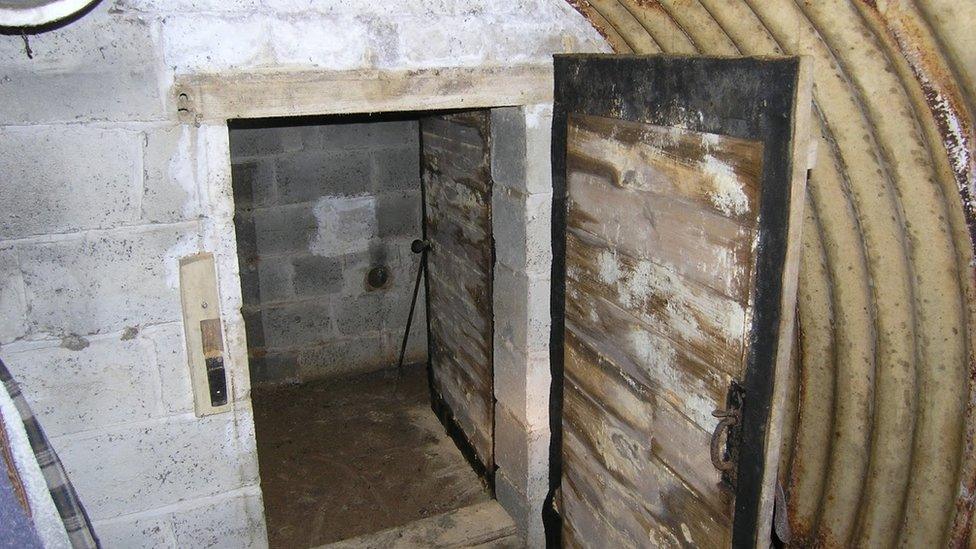
The third chamber of the secret wireless station is where the entrance to the escape tunnel is found
Only 12 In stations have been found so far and Historic England is asking the public for help in tracing the remaining 20.
By July 1944, 3,500 civilians had been trained and 125 civilian-run Out stations had been established, often hidden in dugouts.
Two other wireless stations are protected as ancient monuments - Hare Warren Control Station, external in Wiltshire and an Out station at Heiferlaw, external in Northumberland.
The Pinebanks station is at Thorpe St Andrews near Norwich. It is not open to the public and was gutted by a fire in 2014.
- Published5 January 2016
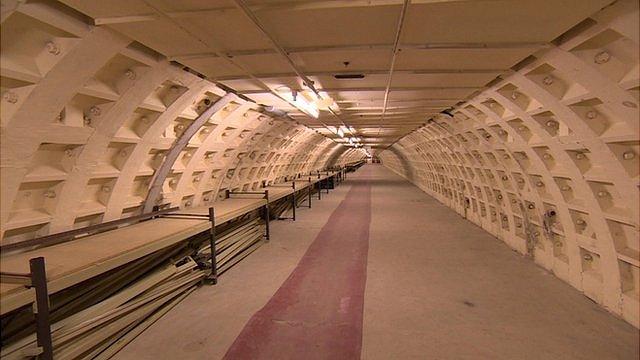
- Published12 May 2013
